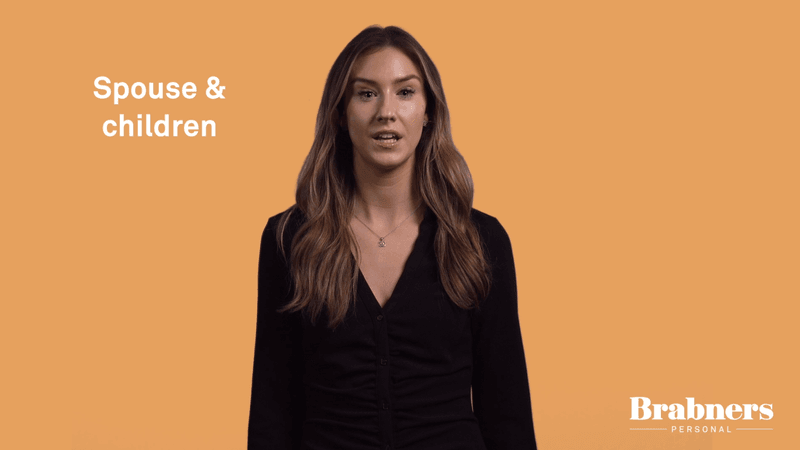When should I review my will?

Here, we outline five key life events after which you should consider reviewing your will.
Read more
We make the difference. Talk to us: 0333 004 4488 | hello@brabners.com
Carefully considered, effective and tailored to your unique circumstances. Our award-winning solicitors are experts in Will writing.
Our nationally-recognised team of private client and estate planning solicitors — one of the largest in the North — can guide you through every aspect of writing or updating a Will.
Most people recognise the importance of ensuring that our families are provided for after we’re gone and minimising the administrative burden that’s left behind.
The best way to achieve this is by drawing up a Will — a legal document that outlines how you want your money, property and possessions to be distributed after your death. A carefully drafted Will gives you peace of mind that everything will be dealt with in accordance with your wishes.
Those without a Will risk their estate being divided up in-line with the intestacy rules. This may not reflect your wishes when it comes to who receives benefit from your estate and who’s responsible for dealing with the practicalities. It may not be tax efficient, either.
Wills can also deal with things that are important to you such as personal possessions, funeral arrangements and appointing guardians for young children.
We can help you to make a new Will or review your existing one. Our experienced Will writing team will take time to understand your circumstances and what you’re trying to achieve, with a focus on what’s important to you. We’ll also ensure that your Will is as efficient as possible for inheritance tax purposes.
Talk to us by giving us a call on 0333 004 4488, sending us an email at privateclient@brabners.com or completing our contact form below.

We’re recognised as a ‘Top Tier Firm’ for personal tax, trusts and probate in The Legal 500 and a ‘Band 1’ firm for private wealth law in Chambers and Partners.
Our team has decades of experience in drafting precise, effective Wills that are bespoke to your personal and financial situation. This includes complex Wills, such as those for high-net-worth individuals, as well as those with an international element.
If you’ve had a change of circumstances, such as marriage, divorce, or the birth of children or grandchildren, you may wish to amend an existing Will.
We can help you to draft a Will that enables you to:

Our private client team is one of the best regarded in the UK. It’s led by Duncan Bailey, a Partner and ‘Top Recommended Probate and Wills Lawyer’ in the 2025 Spear’s Magazine Tax & Trusts Index. This ranks the best probate and Wills lawyers for high-net-worth individuals.
Duncan is an expert in estate planning, routinely providing advice in relation to trust creation and administration, tax-efficient Wills and Lasting Powers of Attorney. He also deals with Court of Protection work and is a member of the Society of Trust and Estate Practitioners (STEP), holding a STEP advanced certificate in trust disputes.
Further expertise is provided by Louise Scholes, who has “a broad experience with experience in Wills, inheritance tax planning, estate administration and trusts” according to The Legal 500. She routinely acts as Professional Deputy for clients and has experience advising lay deputies. She’s also a full member of STEP and previously acted as Chair for its Liverpool branch for many years.
Sarah Murphy has a similarly strong background advising on matters like Wills, estates, inheritance tax and succession planning, estate administration and Lasting Powers of Attorney.
The team also consists of the highly technical Steven Appleton, who advises on all aspects of private client law with a focus on supporting business owners on estate planning matters (including developing succession plans and managing inheritances fairly), as well as talented advisor Amanda Bailey.
“We got a really personal service from Rovena and her assistants. We felt reassured that everything was done correctly and that aspects we wouldn’t have known to consider were properly covered in the Will.”
Client feedback
“Praised as a ‘fantastic professional group of people, from top to bottom’, the private client team at Brabners remains a popular choice for ultra-high-net-worth individuals for complex estate planning issues, tax planning, Will drafting and probate administration.”
The Legal 500 2026
“Louise Scholes has a broad practice with expertise in Wills, inheritance tax planning, estate administration and trusts.”
The Legal 500 2025
“Receiving our Dad’s financial legacy marks a truly momentous culmination for our family of nearly 14 months of endeavour to correct Dad's Will and execute his true wishes. We thank you [Sarah Murphy] and your team so very much for your expert guidance and support. Highly professional but always with a personal and friendly approach.”
Client feedback
“Steven Appleton's expertise in personal estate planning is 'second-to-none'.”
The Legal 500 2025
“Sarah Murphy is a very safe pair of hands for complex estates.”
The Legal 500 2025
“May I take this opportunity to thank you personally for your support to my stepmother while she was alive, for the work you put into her estate and for guiding us through our job as Executors so skilfully. You have really made it a largely effortless process from our point of view.”
Client feedback
“Sarah Murphy went way above and beyond the role of 'solicitor' when dealing with my case. Her personal touch, commitment to my relative and the advice and support she provided to me was so much more than just ‘doing her job’. Sarah has been incredibly helpful and just seems to manage problems. Nothing is too big to overcome.”
Client feedback








We know that dealing with Wills, inheritance and probate isn’t always straightforward.
If you’re facing any kind of dispute relating to the death of a loved one, their estate or their assets, our expert Will and inheritance disputes team is on-hand to assist.
We specialise in disputes that relate to the validity of Wills, Inheritance Act claims for financial provision, trustee and executor disputes, as well as any issues that arise in the interpretation of Wills or the administration of estates. We also advise in connection with allegations of lifetime financial abuse and disputed gifts and transactions.
Often called on to resolve issues that arise in high value and complex estates — including those with business or international elements — we can recover or protect multi-million-pound estate assets.




Here, we outline five key life events after which you should consider reviewing your will.
Read more

We examine the case of Kerry Tolley v No Defendant (Re Caroline Fisher) and its impact on the administration of estates.
Read more

Our lawyers explore the requirements that all certificate providers must follow to ensure the validity of an LPA.
Read more
Loading form...